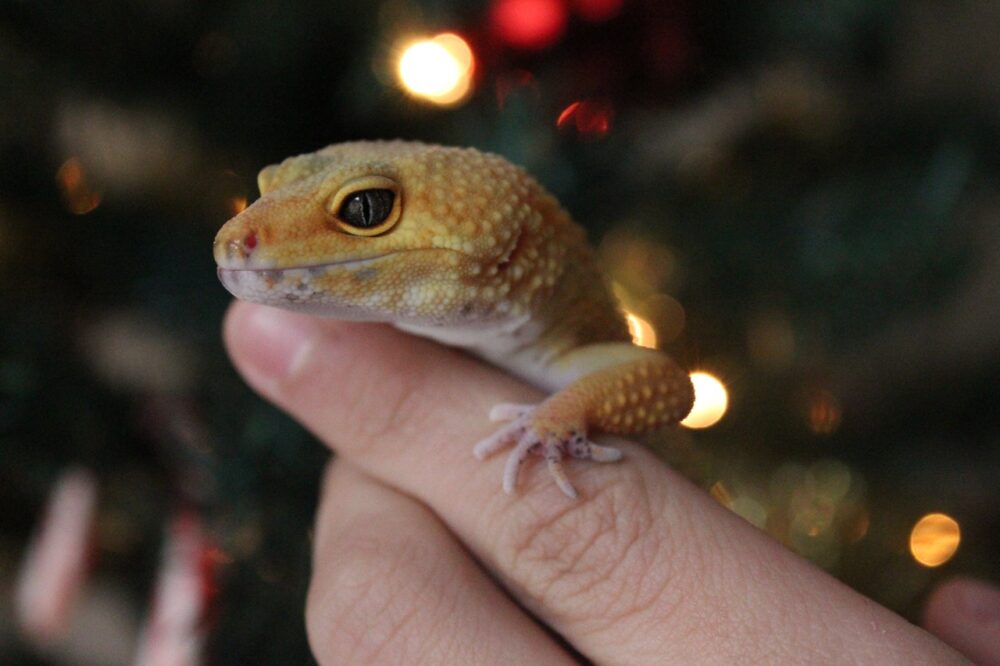Having a Gecko as a pet is slowly gaining popularity. With more people falling in love with these beautiful scaly creatures, it has become important to know about their habits and living conditions. This will help us to become better caregivers as well as allow them to grow and extend their lifespans.
One of the chief concerns about geckos is their diet. Geckos are essentially wild animals and insectivores. Their diet is mostly insects. However, all insects are not safe for geckos The most common foods are crickets and mealworms.
However, there is another superfood that is packed with nutrition and can be an excellent addition to your pet’s diet-Dubia Roaches.
What is a Dubia Roach?
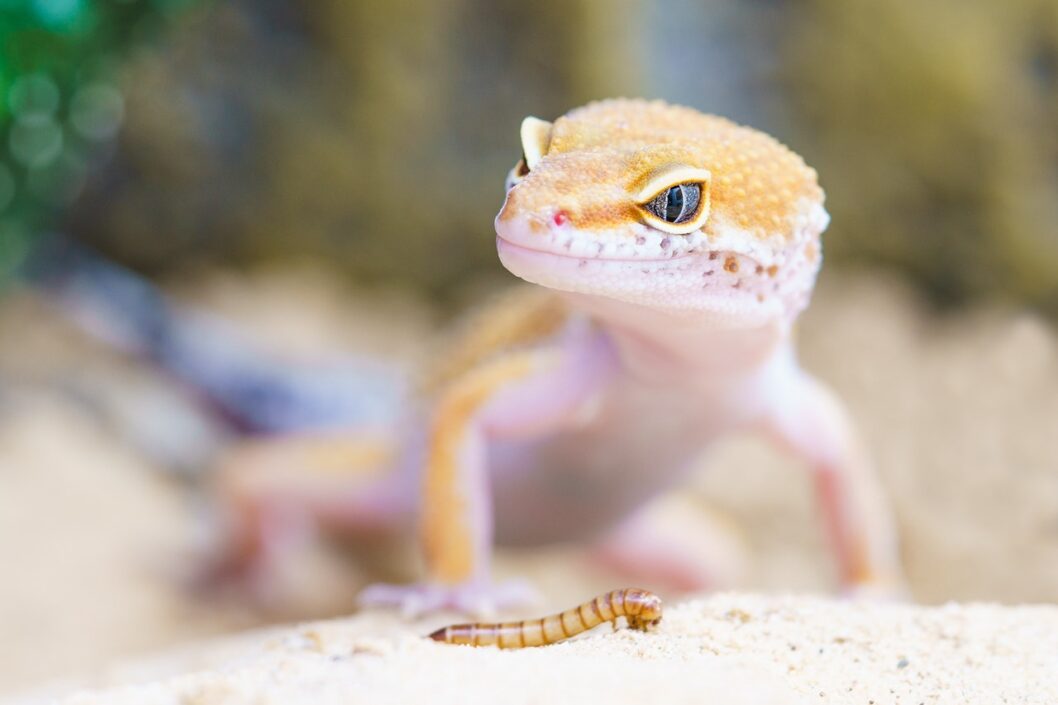
Source: unsplash.com
Dubia Roaches aka Blaptica Dubia are a branch of the cockroach family. These South and Central American natives range from medium to large sizes and excellent foods for your scaly friends.
The soft shells of the roaches make them easy to eat and digest. They are also unable to climb flat surfaces so this increases the chances of your gecko eating them before they can escape. However, like all cockroaches, Dubias also bury themselves for protection so make sure your gecko has eaten the roach before they burrow in the ground. These roaches can later feed on gecko skin and cause bacterial infections.
They have a lifespan of 2 years and grow up to 2 inches depending on their care. Males look larger than females due to their wings.
Preparing Dubia Roaches for Leopard Gecko Feeding
To prepare the Dubia Roaches for the gecko, they need to go through a process called gut loading. This is giving them nutritious, powdered food in addition to their normal diet which is done at least 12hrs before feeding. The most effective way to do this is to place the insects with the powder and piece of potato (for hydration) in an enclosed container.
Furthermore, it is recommended that the roaches are dusted with vitamin and mineral supplements which can be done by slightly shaking the powder and insects in a bag.
How Often Do Leopard Geckos Eat?
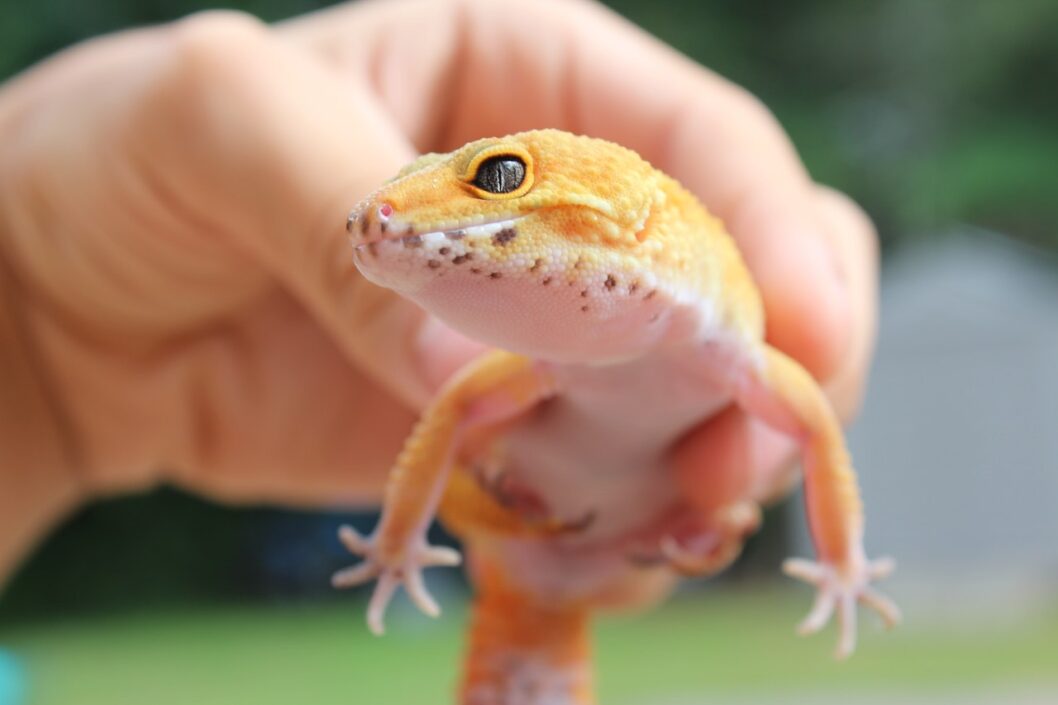
Source: pexels.com
The frequency of feeding is related to your gecko’s age, body length and health. Baby geckos need to be fed daily with at least 5-7 small roaches until they grow 4” long i.e 35 per week. Juvenile geckos can also be fed medium-sized roaches daily. On the other hand, adults can be fed on alternate days. To help you remember, a good rule of thumb is two roaches for every inch of the reptile’s length. Therefore, for an 8-inch reptile, 16 roaches can be given on alternate days.
What Size Dubia Roaches are Ideal?
A 3/16” or ¼” Dubia roach is the perfect size for a standard gecko. The insect shouldn’t be bigger than the space between the geckos’ eyes is a good way to estimate the size of your roach. Too large roaches can cause the gecko to choke. Click here to know more about Dubia roach sizes.
Leopard Gecko Lifespan
After hatching, baby geckos measure about 3-4 inches. With time and proper diet, geckos can grow up to 10 inches to a foot long whereas females can be eight inches long.
Where can you buy Dubia Roaches?
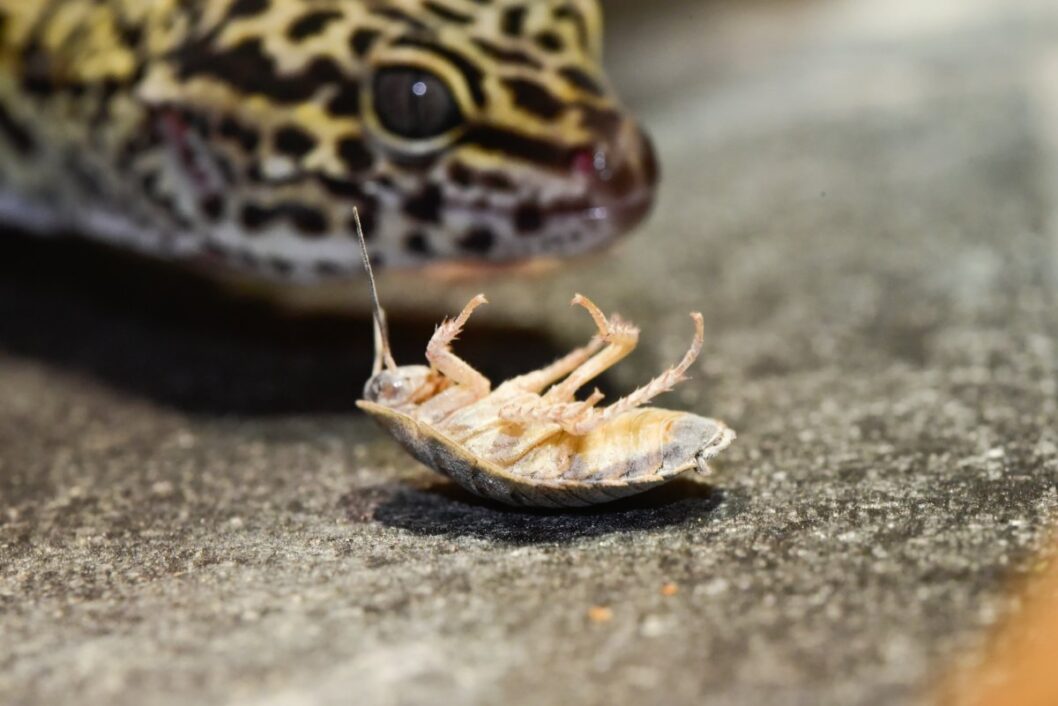
Source: roachrancher.com
Most reptile stores sell Dubias in bulk. Dubias vary in size so choose the correct size for your gecko. Your gecko won’t even try to eat the roach if they are too big. There are plenty of stores both online and offline with dubia roaches for sale. So it shouldn’t be difficult to get them.
What benefits do Dubia Roaches have for Leopard Geckos?
Given the odorless nature and soft shells, Dubias are ideal foods for geckos. Not only are they easy for the gecko to eat but also easy to clean. The reason why geckos are insectivores lies in the benefits they get from consuming them. This is chiefly moisture, protein, calcium and fats. A balanced diet prevents upset stomachs and dietary insufficiencies.
-
Moisture
As geckos seldom drink water, they must get their water source from the foods they eat. Dubias are 61% water placing them in the normal class for moisture.
-
Protein
Protein is the main requirement in a gecko’s diet. With a protein content of 36%, which is double the number of other protein sources for reptiles, Dubia is one of the highest protein sources for geckos only topped by silkworms.
-
Calcium
Calcium is an essential part of a gecko’s diet. However, Dubia Roaches contain only 20 mg/100g, which is not enough for a Gecko’s diet. Therefore, supplement the Dubias with calcium powder before feeding.
-
Fat
Ideally, low-fat content is best for your gecko’s digestive system. Waxworms are 20% fat compared to the 7% of Dubias. Too much fat can disrupt your pet’s gut system.
Try to get escape-proof dishes with smooth and inwardly curved walls to ensure your gecko can eat all the roaches and mealworms.
Other foods to Dubia Roaches and their nutritional values?
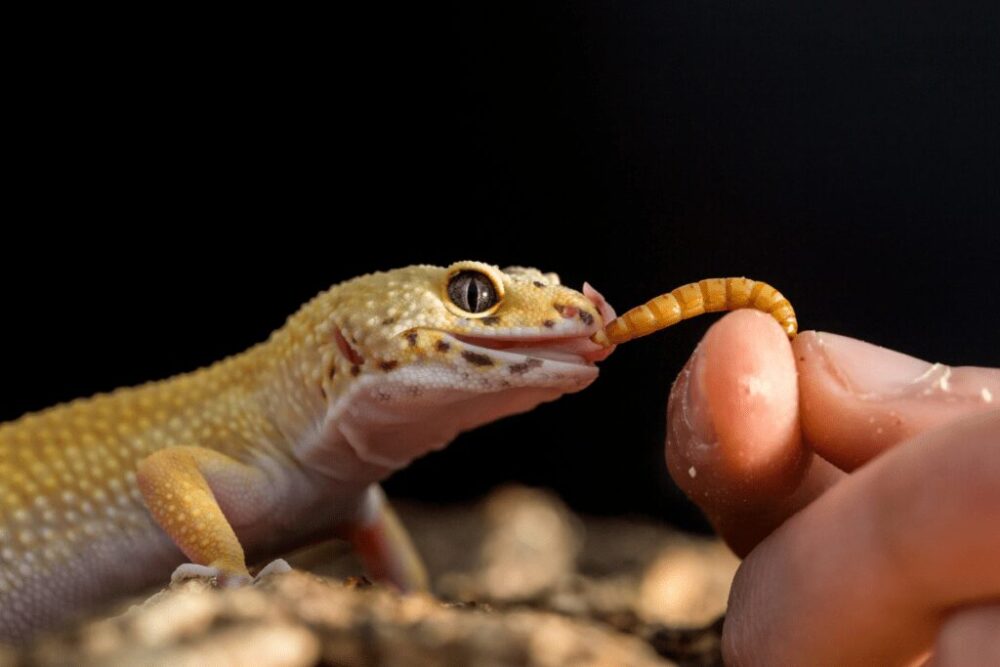
Source: oddlycutepets.com
It is wise to alternate your gecko’s diet to keep their appetite and diet healthy. It is better to give them highly nutritious treats once or twice a week instead of regularly. These options include:
Butterworms
- Moisture 58%
- Protein 16%
- Calcium 42 mg/100g
- Fat 5%
Crickets
- Moisture 74%
- Protein 18%
- Calcium 14 mg/100g
- Fat 6%
Mealworms
- Moisture 59%
- Protein 10%
- Calcium 3 mg/100g
- Fat 13%
Silkworms
- Moisture 76%
- Protein 64%
- Calcium 34 mg/100g
- Fat 10%
Waxworm
- Moisture 61%
- Protein 16%
- Calcium 13 mg/100g
- Fat 20%
Nutritional Value of Dubia Roaches
These easily manageable, odorless, low-chitin invertebrates are better options than crickets and these insects are also easily digestible. Rich in protein and calcium, these highly nutritious critters are also easy to breed. Breeding roaches is a good option if you have multiple scaly pets and you don’t have to worry about buying the roaches daily.
The lack of odour also makes it easy for owners, other family members and visitors to keep the house clean. They also don’t jump or fly so your geckos can eat them with ease.
What is Bad About Dubia Roaches?
The only downside of these roaches is their availability. They are also on the pricier side so not all owners may be interested in buying them.
Conclusion
A staple and healthy diet are essential for the longevity of your beloved gecko. Incorporating Dubia roaches into your gecko’s diet will provide them with good nutrition and your gecko will be grateful for this great addition to their meals!


